I’m not too sure where to start with this post. The two weeks I spent in Iten in late July/early August were an incredible sporting and cultural learning experience in a fascinating part of rural Kenya.
For a long time now it had been my dream to visit this country, to try the famous Ugali and more recently to learn about Kenyan runners and the ways of the Kenyan training system.
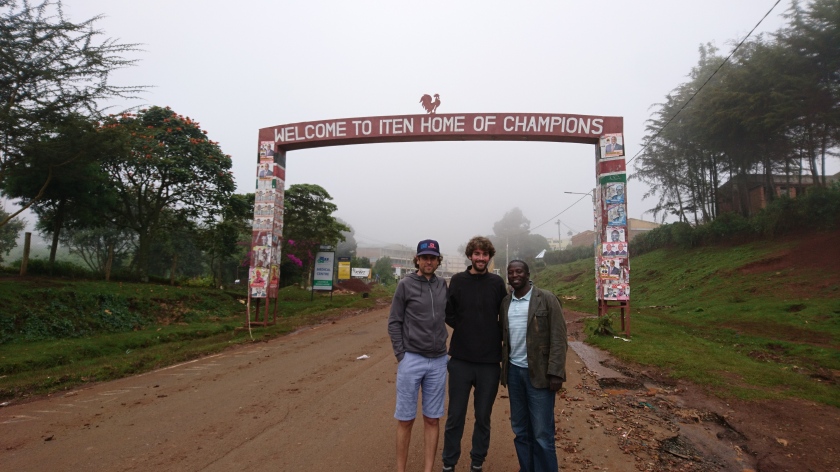
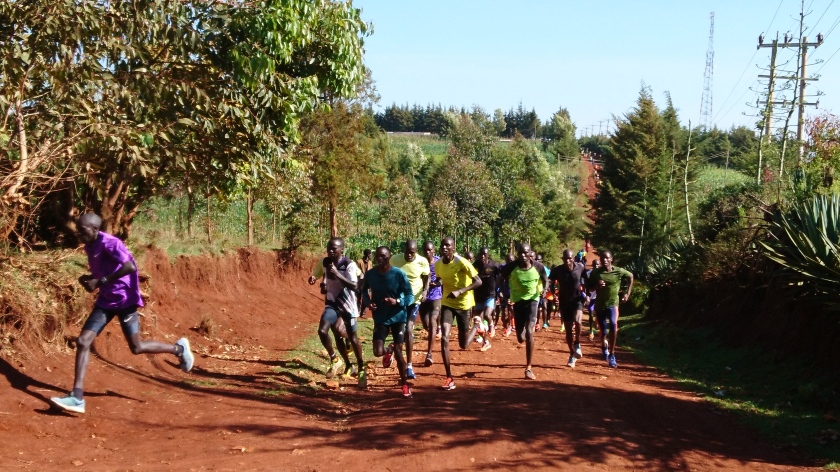
Iten, a small rural town of around 40,000 people would be host to this incredible experience. A place where elite Kenyans (& others) live, train and breathe running in what is surely the world’s most jaw-dropping running ‘mecca’.
For myself as an average recreational runner, there has been nothing more fascinating, more inspiring or more interesting than visiting this awesome town and getting fully immersed in the lives of those who live and train here.
The one key take away: an African way of both running and lifestyle; relax, enjoy the moment and tune into your body. Forget splits, paces, rep times, rest times, exact weekly mileage and all that stressful detailed stuff. Be a kid again – if you feel like running easy and ‘slow’ (most Kenyans run 9-10 minute miles on easy runs!) then do it. Feeling good half an hour in? Push the pace. Run up some hills, run down some hills, go off road into the forests and trails, listen to the birds around you and focus a lot on the rhythm of your steps and the feeling as you breathe.
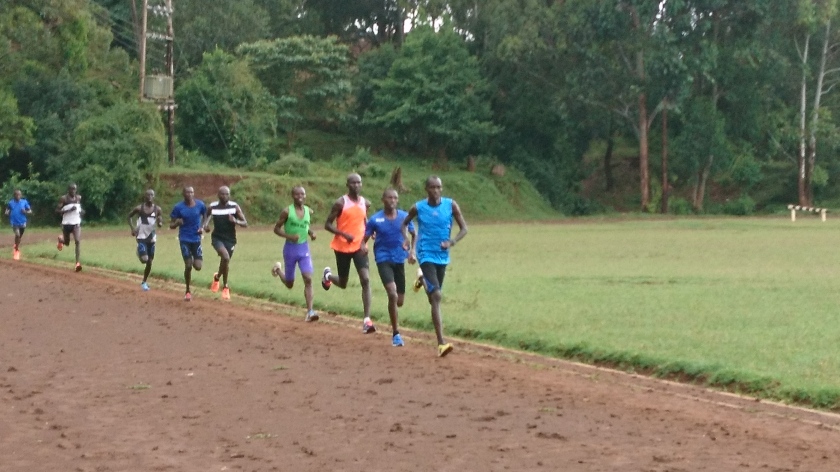
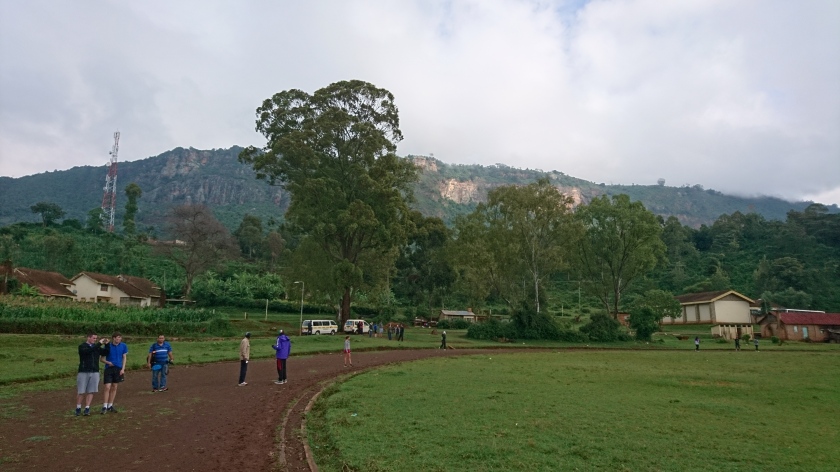
When it’s time to go quick, absolutely go for it. But when you need to go easy, just chill!
For me, being in Iten has shown or reminded me that running is ultimately incredibly simple – forget the science and percentages, the scientific tables and pace zones. You can probably forget your watch too (I love Strava too much, soz). Run by feel and by effort in training…
That was what struck me the most – how informal and un-uniform this Kenyan way of training was. Watching sessions involving world champion marathoners and record holders showed us how at ease and comfortable with the running and, crucially, their body these Kenyan runners are. The stride looked unbelievably smooth and ‘natural’ as they effortlessly floated across the trails and dirt tracks.
A ‘relationship with the ground’
Barefoot running has steadily risen in popularity recently in the west, as it promises to cure injury issues and ensure a more natural running style. Its supporters argue that barefoot or minimalist running automatically produces a more natural style and connects the human body and mind stronger to the environment it is running through.
Being fortunate enough to chat to some of Kenya’s finest coaches, we learned about a crucial component of the Kenyan way – a positive mutual relationship with the ground beneath their feet – something developed from their very first steps as a child.
Nearly all Kenyan athletes ran barefoot as young children, running several kilometres to and from school across the fields and dirt tracks. This enabled them to connect better with the earth and this has been carried forward. Elite athletes now have completely assured foot strike and a totally smooth and rhythmic stride over the often-uneven ground, allowing significantly lower injury rates resulting from more assured form. Kenyan coaches highlight that this enhanced relationship with the earth beneath their athlete’s feet has contributed to the Kenyan dominance in long distance running.
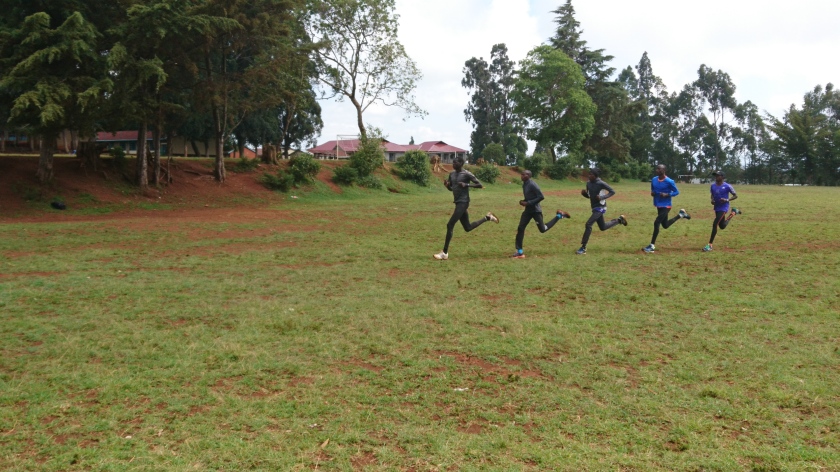
It would be curious to find out whether this connection or relationship is developed through the running or from a more nature-society based life, where the natural environment is treated totally differently to here in Europe. Most Kenyan’s who live in the rural areas eat a predominantly plant based diet, rarely if never touching packaged foods, with walking the primary mode of transport and a childhood based on agriculture rather than indoor technology. Does this contribute to the special relationship runner’s and coaches emphasise?
Why or How do we value Nature?
A further point of discussion is the debate that nature or nature’s sublime beauty is predominantly a western concept. Could research on the senses and a connection to nature be done in non-western societies, in a similar way to how it is, here in the UK through a lens of natural appreciation? Arguably we value our natural landscapes totally differently – emphasising their value in aesthetic or leisurely ways rather than for its ability to sustain a healthy lifestyle. One of my main observations from 6 weeks spent travelling Africa was that visual aesthetics of landscapes are seen in totally different ways compared to here in Scotland. In Africa, land is mostly valued through its ability to provide for community’s – food, water, household items, tools and so on. Thus, it is a more interactive relationship. People are within their environments rather than gazing from the outside. They have a tactile immersive experience in natural environments (everyday) rather than interacting with them through a camera lens or a television screen (every so often). Nature is a crucial significant part of and key to life in rural Kenya, and indeed much of the continent. A disconnected relationship with nature has been born out of a technological lifestyle that can’t engage people in the same way as a dependent multi-sensory lifestyle lived by so many of these elite athletes as they grow up. Perhaps our most disconnected sense – touch is incredibly important in young athletes as they feel their way over the natural ground, emphasising the importance and significance of the earth in relation to their health, life, heritage and culture. I wonder if only those who fully experience nature by being part of it, by being in it daily, can truly connect to natural environments.
I got the sense that Kenyans have a real dynamic relationship with the environment, manifested through the senses – predominantly touch and feel as well as a body awareness in situ, and arguably this is developed from their childhood spent in nature and consolidated further through running on the wonderful trails found across rural areas.


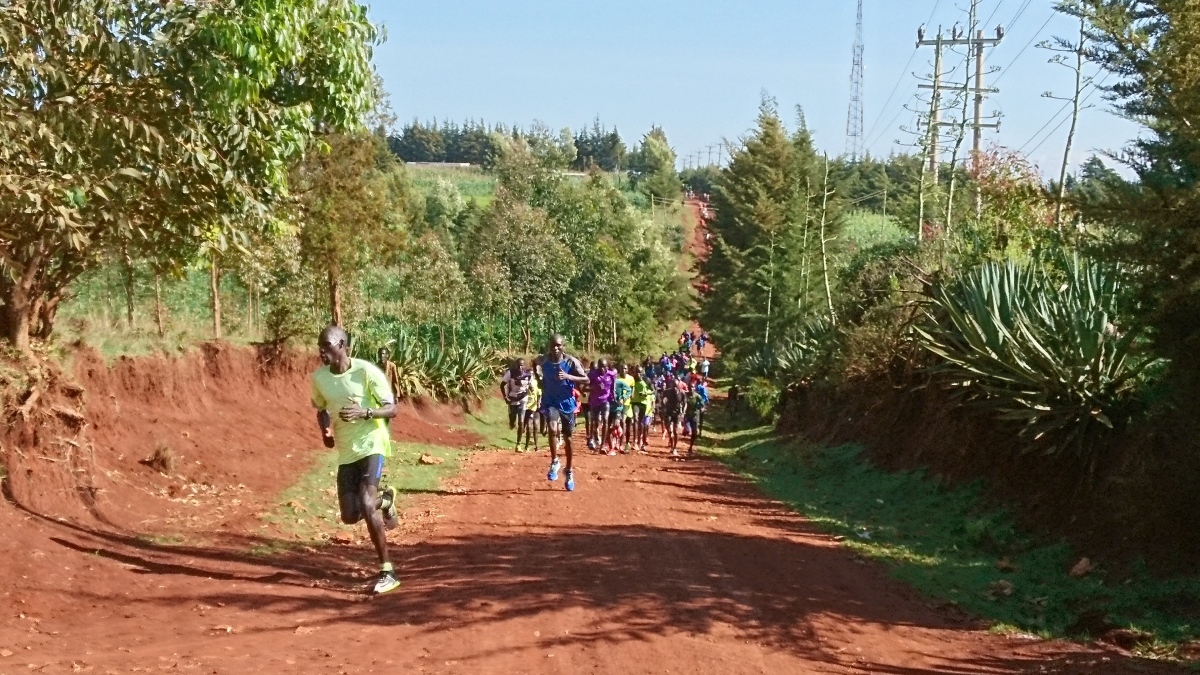
Thanks for a great insight into your thoughts on why the Kenyans do so well at distance running. Can’t wait for your next blog. ✅
LikeLike
This is such a great post. We can learn so much from others and our fellow runners in Kenya is one terrific example.
I have never ever run with electronics or pace watches such as a Garmin or Strava. In the long races with cut off times I wear just a plain old fashioned wrist watch. Sometimes I am so tempted to make a purchase, and I read this post and I am contented just the way I am. It is refreshing to see how the Kenyans are one with the earth and nature.
Thank you for sharing! 🙂
LikeLiked by 1 person
Thank you Carl! Glad you enjoyed reading it! So much can be learned from their style I think but just about doing what works best for you and what you enjoy, I think.
Happy running!
LikeLiked by 1 person
Love this post Ben, you write so well. We can learn so much from other cultures and their way of seeing the natural world. In the West we can forget how important it is to connect to what is around us.
LikeLiked by 1 person